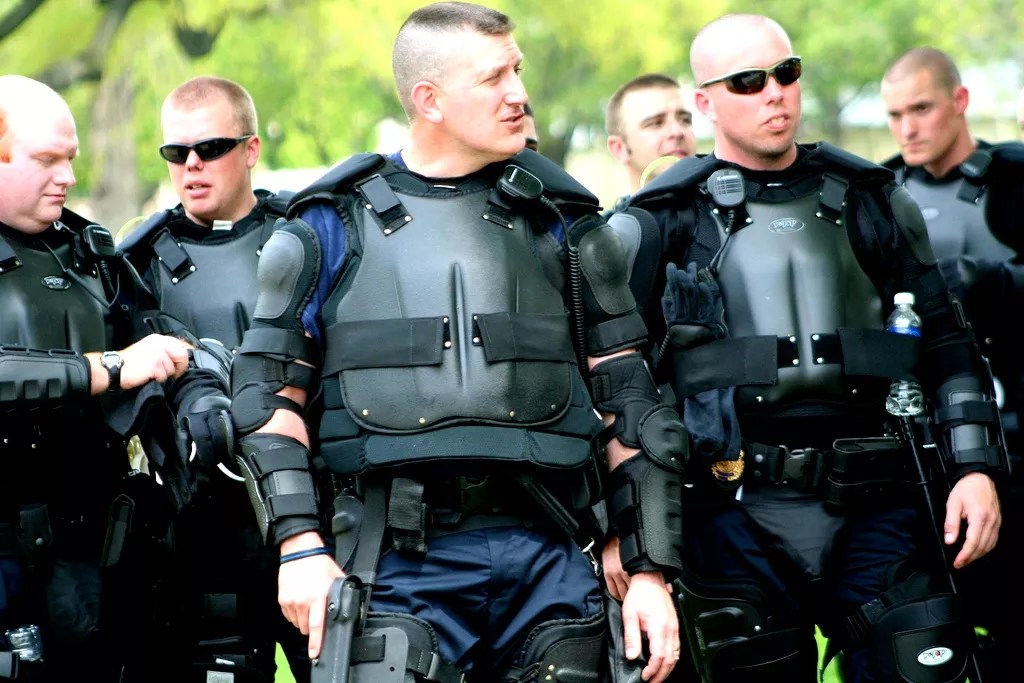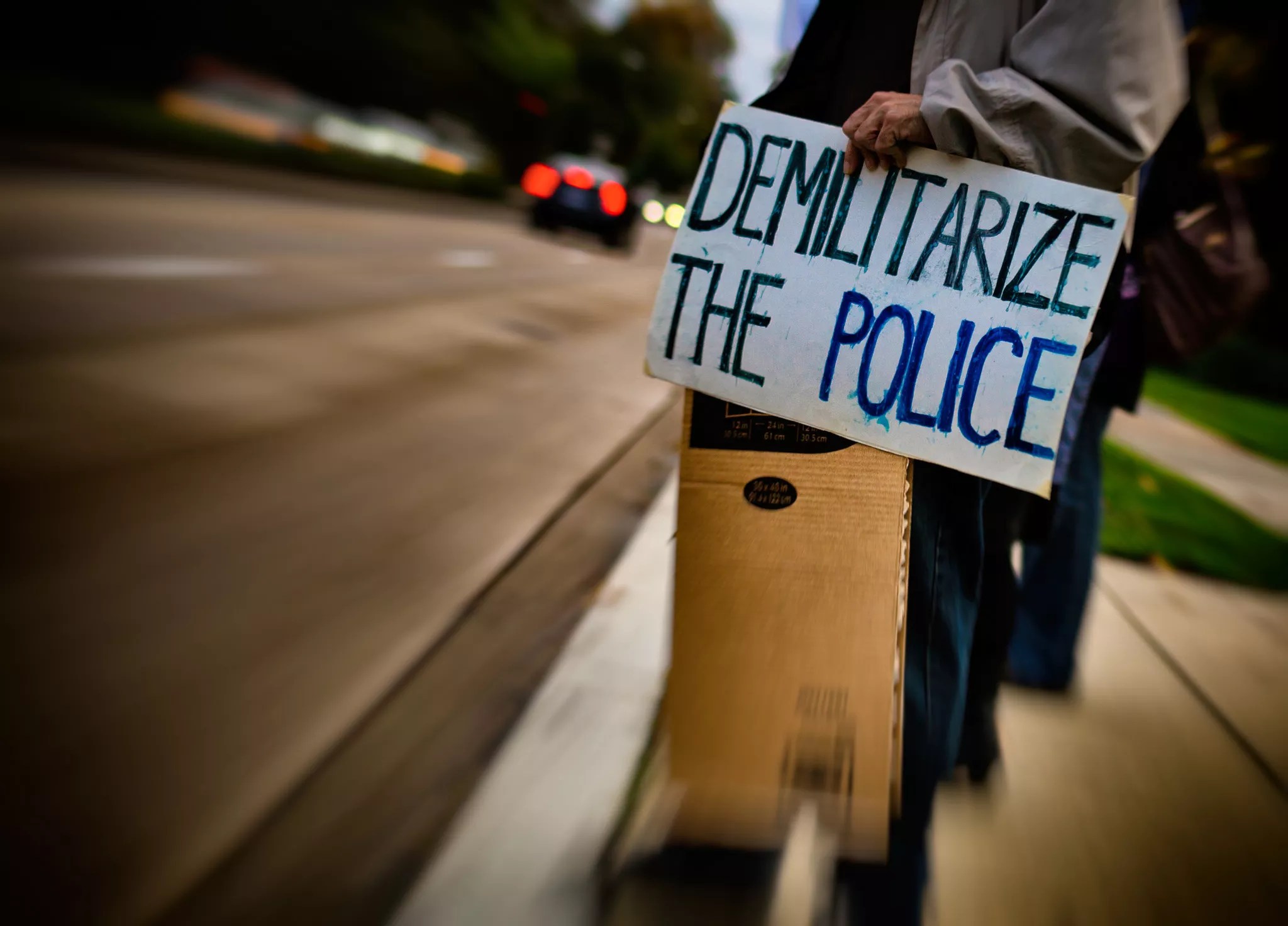
Creative Commons / Flickr user Elvert Barnes

Audio By Carbonatix
The images were alarming. Armored assault vehicles with mounted water cannons blocked the streets. Fully armored police officers who looked like Robocop squared off against protesters. Converted grenade launchers and M4 carbines were used to fire rubber bullets and gas canisters as crowd-control measures.
All of this military hardware was utilized by cops in Ferguson, Missouri, as a response to protests after a police officer killed Michael Brown in August 2014. As the nation watched the crackdown live on television, a countrywide debate ensued about the militarization of police departments, ultimately resulting in President Barack Obama signing an executive order in May 2015 that downsized a Pentagon-led initiative, called the 1033 Program, which had been providing local law enforcement agencies with surplus military hardware.
On August 28, President Donald Trump reversed Obama’s executive order, fully reinstating the 1033 Program so that local law enforcement agencies can once again get their hands on gear formerly used by the military – which can range from items as innocuous as golf carts and generators to mine-resistant attack vehicles and machine guns.
Militarizing the police is controversial, and watchdogs such as the ACLU have released reports alleging that giving law enforcement personnel weapons and equipment designed for war-zone combat ultimately puts citizens at more risk.
After Trump’s reversal of the Obama-era decision to scale back 1033, Westword asked the Denver Police Department whether it will request surplus military equipment.
“The change in federal policy will not impact the Denver Police Department, as it has no intention of requesting surplus military equipment,” says Doug Schepman, a DPD spokesman.
“DPD does not wish to offer an opinion on the change,” he adds.

Creative Commons / Flickr user Johnny Silvercloud
The ACLU of Colorado has, in the past, sued the City of Denver to find out how it had spent a $50 million federal grant ahead of the 2008 Democratic National Convention for “security,” and found that the DPD had obtained some military-like equipment, including 88 guns that fire balls that disperse pepper spray.
At least during Chief Robert White’s tenure, which began in December 2011, DPD has claimed that it hasn’t been using the 1033 Program.
But other law enforcement agencies in Colorado have, with some obtaining equipment like assault rifles, night-vision goggles, body armor and mine-resistant vehicles from a Department of Defense facility at Fort Carson. The Greeley Tribune reported on August 31 that law enforcement agencies in Greeley and Weld and Yuma counties will take advantage of the policy change. While some agencies regard the program as unnecessary or a step toward militarization, others see a budgetary opportunity.
As Greeley Police Chief Jerry Garner told the Tribune, “We’re not having to go out and spend local taxpayers’ money. It’s enabled us to get some things we wouldn’t have been able to get otherwise.”